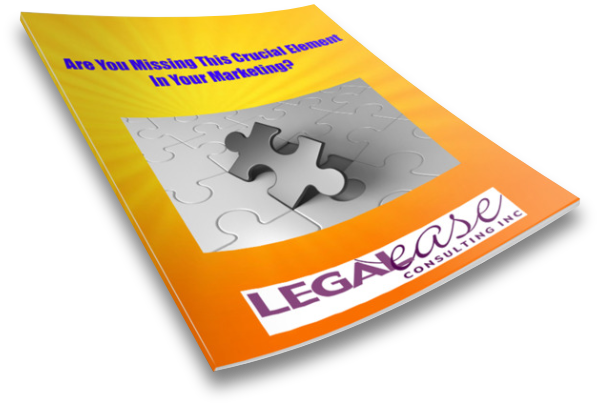Nobody likes change, and perhaps lawyers are even more resistant to change because they’re so used to relying on ‘precedent’ to determine what they can or should do in the practice of law. But it may be time for some more creativity when it comes to billing clients. Many assume that the market wants and supports the billable hour because that’s what everyone is used to. Lawyers fear that going to a different fee model automatically means they’ll be making less money, and, at least according to the lawyers, clients aren’t willing to pay more for legal services. I don’t know that either of those assumptions are true. I do know that there are problems, on both sides of the fence, with using a billable hour model.
One of the main complaints from clients about hourly billing is that they are unable to budget or to anticipate legal fees. One of the possibilities is to establish ‘flat fee’ billing. But most lawyers assume that flat fee billing still means billing based on a particular activity, and they base the fee on the time it takes to perform that task. The same activity may have a different value for different clients, which may justify a different fee. ‘Flat’ fees don’t necessarily mean that the fee is the same for every client, or that the fee is always the same. It means that the lawyer needs to discuss the client’s expectations and intended outcome, as well as the value of those particular services to the client, and establish a fee based on the value. It is the value which will determine what the client is willing to pay – not the activity itself.
One of the objections to a fixed price model which was raised in the comments to the aforementioned posts was that lawyers can’t possibly influence the fees that are charged for legal services. Legal services aren’t coffee or water, but years ago, I’m sure that if you asked Americans what they would be willing to pay for a cup of coffee, their answer would be significantly less than what many spend on Starbucks without blinking an eye(even considering inflation). Starbucks definitely influenced what Americans are willing to pay for coffee. And what about bottled water? Before bottled water, water was consumed from the tap – for free. But someone found a way to get people to not only pay for bottled water, but to pay relatively high prices for it.
Both of these examples demonstrate that value is different for different customers, and that the business (or law practice) that can do a good job of establishing that they provide a value over and above what the customer is used to, can certainly sell at a different price point. These examples may also knock out the assumption that the only way to succeed with a ‘flat fee’ model is by cutting expenses or services; in fact, they demonstrate that the opposite may very well be true.
Although value may be based on results, it isn’t always based on what the lawyer would typically consider ‘results,’ and this can create riction between lawyers and clients in any fee arrangement. Goals and value need to be established in advance: perhaps the client is more concerned with making a point than with a particular result, monetary or otherwise, or is willing to pay for ‘peace of mind’ or some other intangible result. These situations are prime for an alternative fee agreement.
There could be many ways of determining a fixed fee established in advance with the client based on the client’s objectives and the value to the client, as opposed to a fee that is based on the time spent or on the specific activity to be performed. I don’t know what the “ideal” answer is, but I think the exploration needs to be done, and that lawyers need to start coming up with creative ways to devise fee arrangements that work better for themselves and their clients.
Michele Golden of Golden Practices in a post entitled, “Inside The Firm of The Future,” notes that, “this topic evokes more passion, on both sides of the discussion, than I’ve ever witnessed in the professions.” I happen to think that’s a good sign – to me, if there’s passion involved, it’s worth discussing, and likely that a breakthrough is on the way.
If you liked these articles, subscribe to my e-newsletter, and you’ll receive new articles in your in-box. The articles in the newsletter are not available to the public – the only way to see those articles is to receive the newsletter.
Already a subscriber? Want to learn how I can help you? Learn more about the products and services I offer by clicking here.

Allison C. Shields
Legal Ease Consulting, Inc
Creating Productive, Profitable and Enjoyable Law Practices
![]()
P.S. Found a mistake or a bug? If there’s anything that bothers you about this site, I want to know! Send me an email at Allison@LegalEaseConsulting.com. I want this site to be not just a resource, but a refuge for lawyers. I want you to be comfortable here. So if there’s something that bothers you, please tell me!




1 thought on “Value Based Billing For Lawyers – Will it Work?”
Comments are closed.